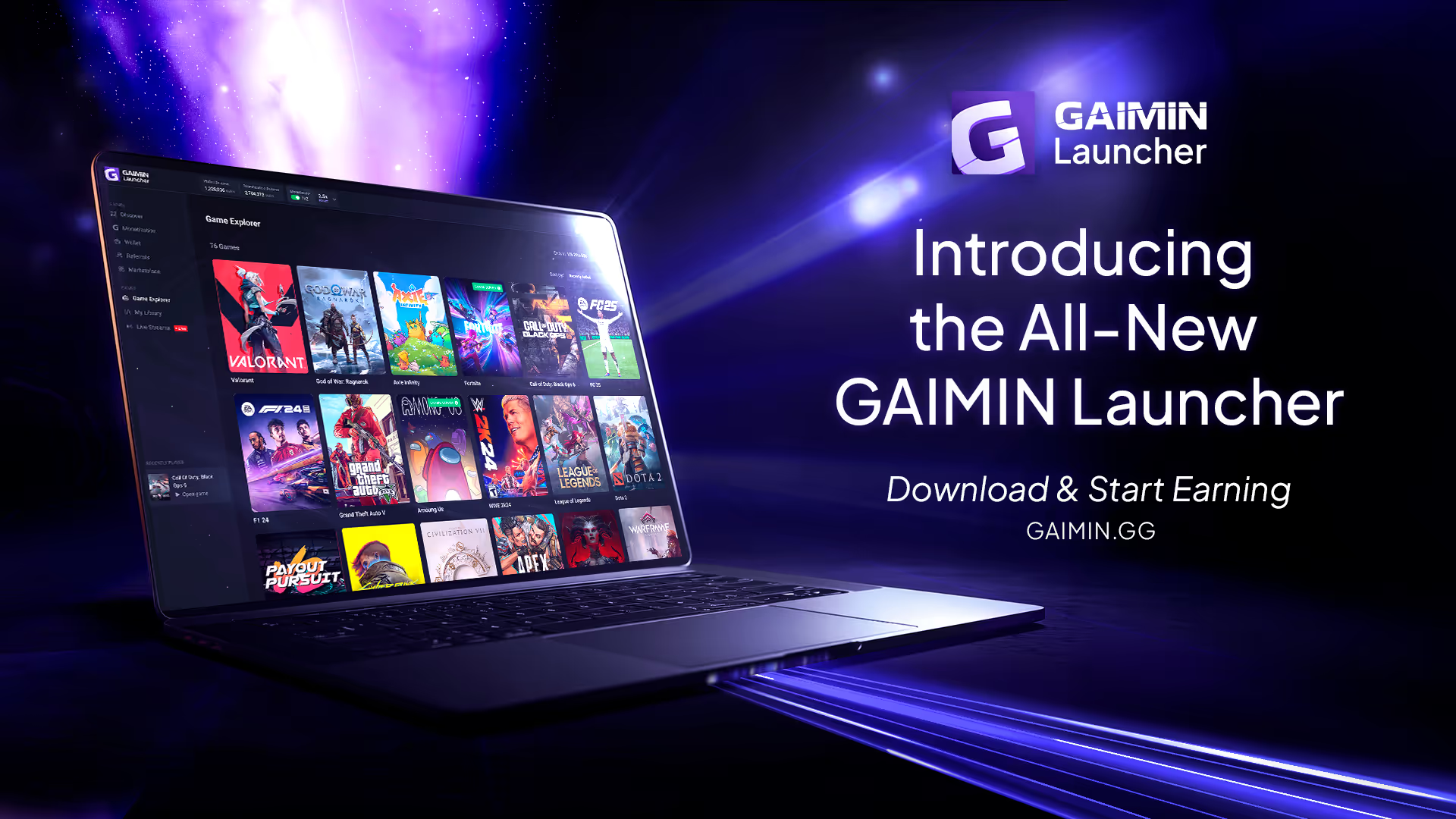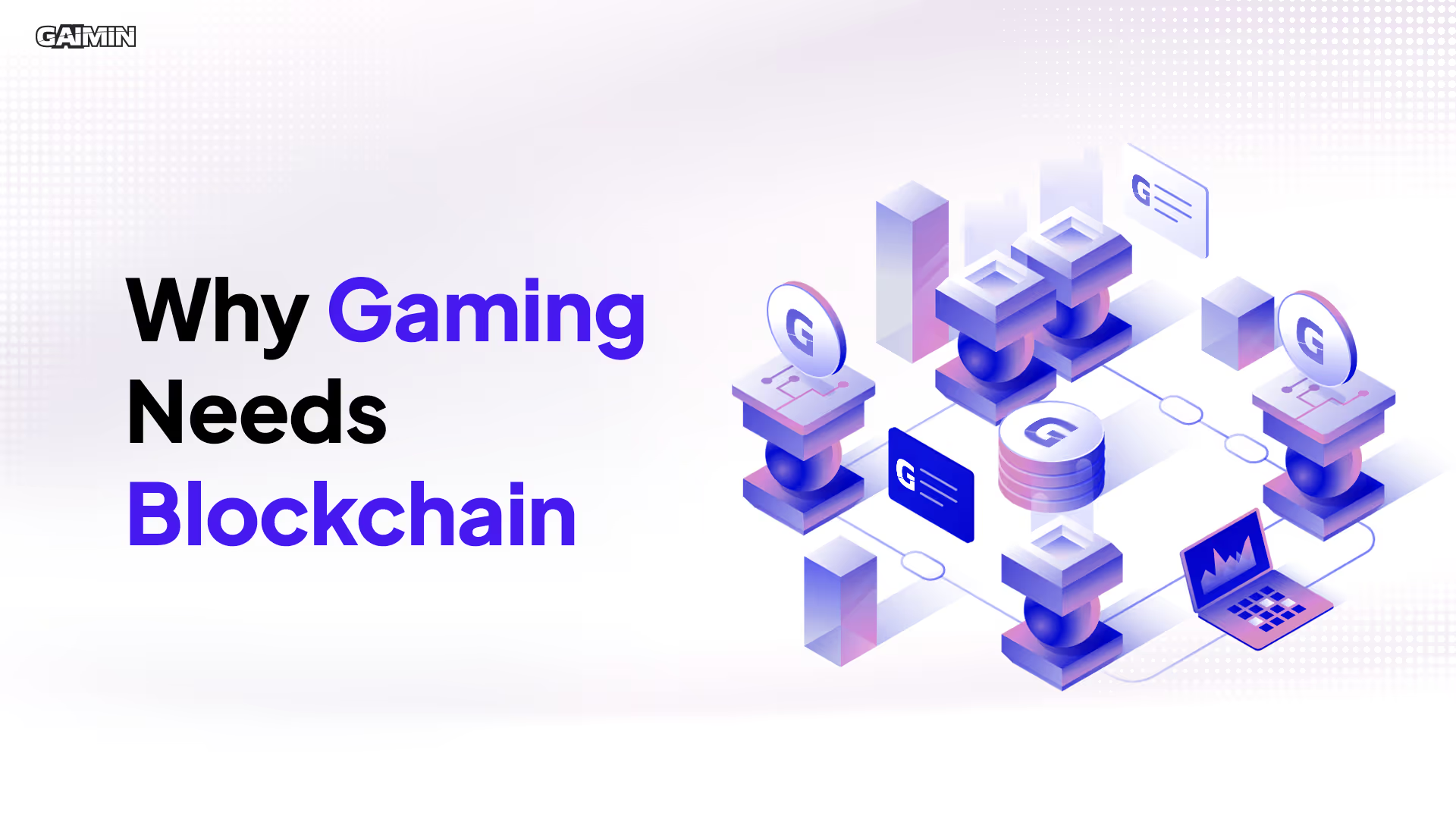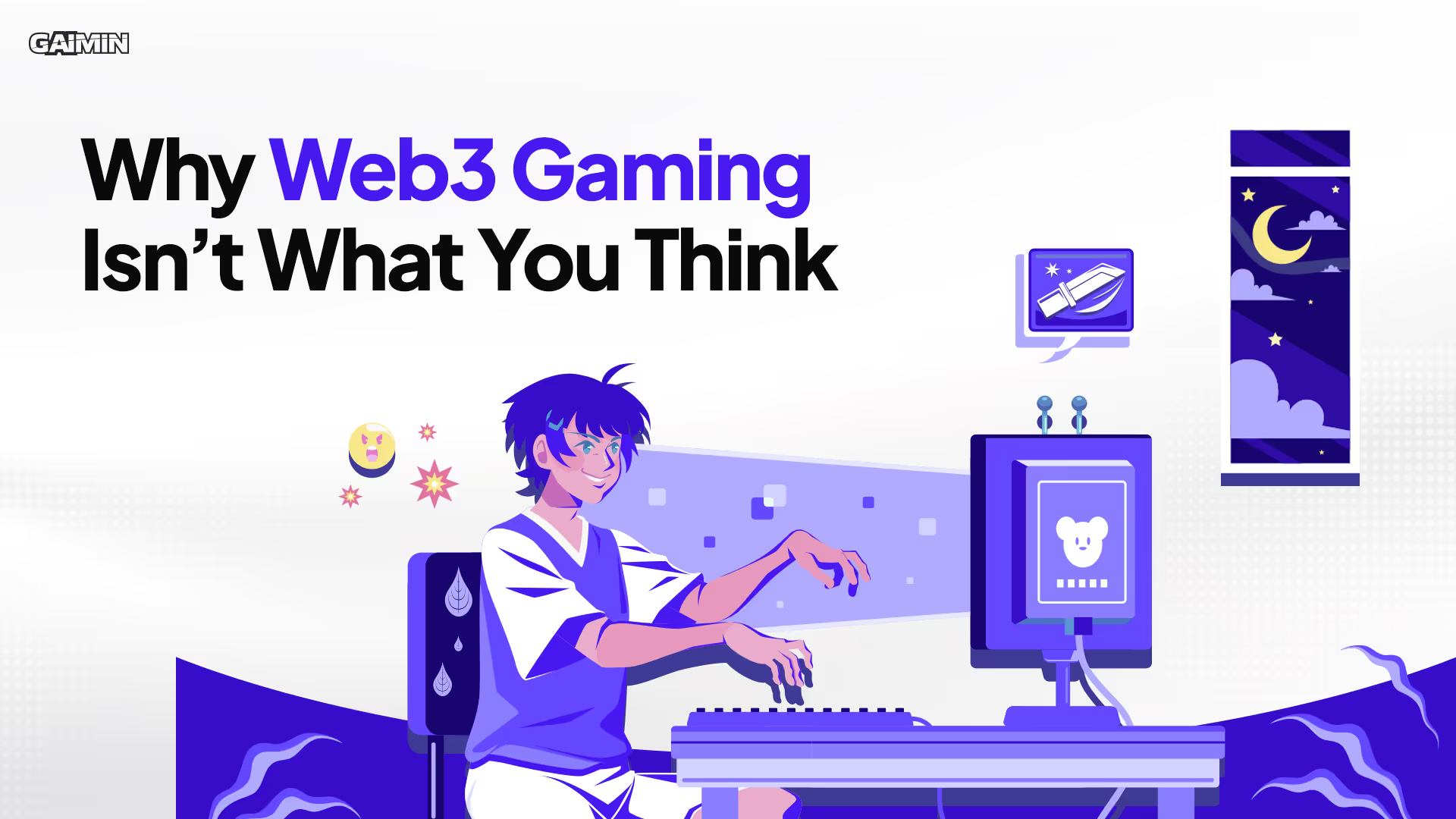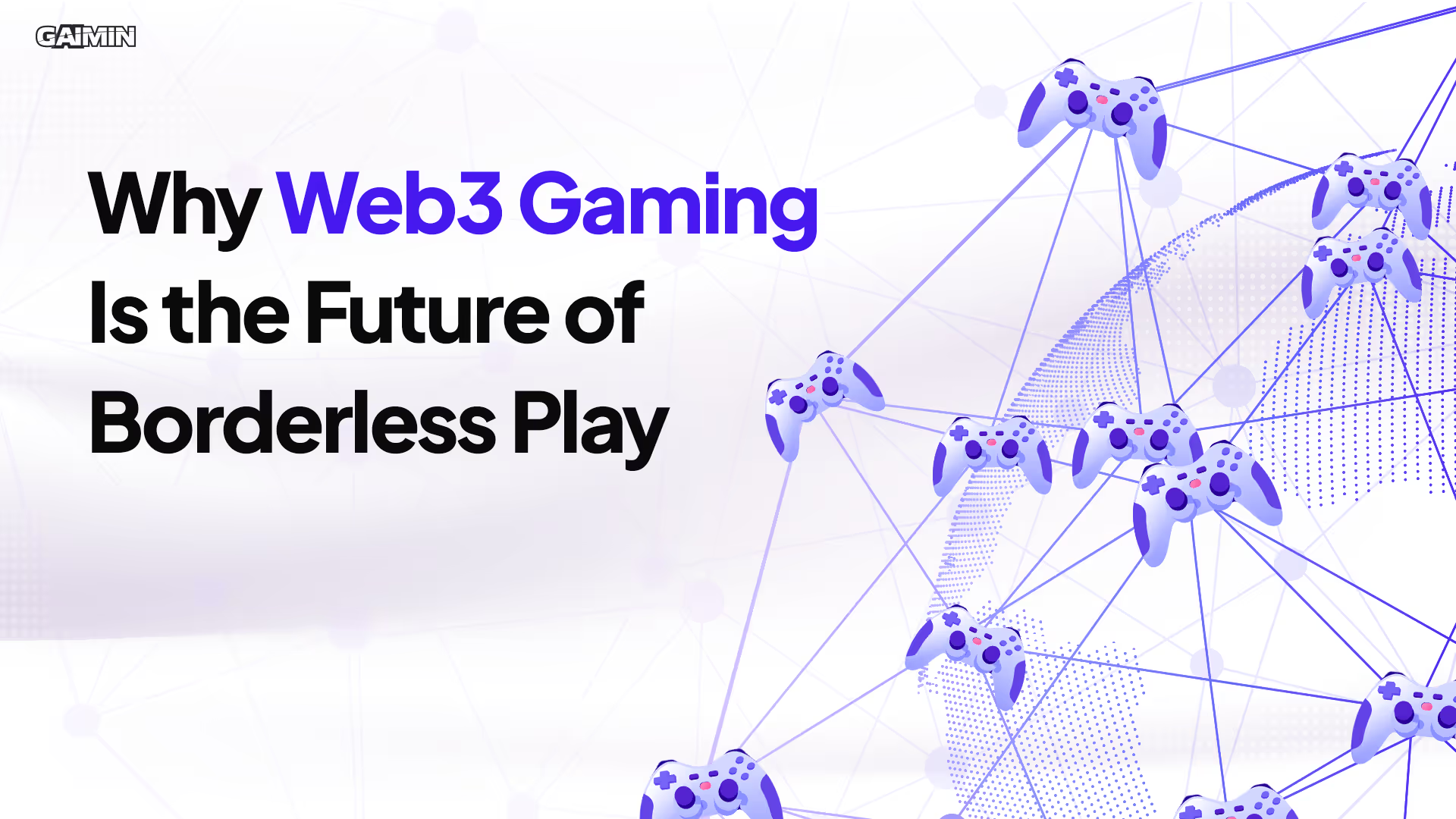Introducing the All-New GAIMIN Launcher: A Better Upgrade for All PC Users
When we first introduced the GAIMIN platform, the vision was clear: to provide gamers with the power to unlock rewards while simply doing what they love, gaming. With the release of our all-new Launcher, we’re taking a massive step forward, not just with an upgrade of the platform but also as a redefinition of how all PC owners worldwide can turn their PCs into engines of value.
Why Blockchain is Fundamental to the Future of Gaming
Gaming has always thrived on innovation. From arcades to consoles, cartridges to cloud gaming, the industry continues to evolve at a staggering pace. But while graphics, gameplay mechanics, and networked experiences have advanced dramatically, one element remains outdated: how players own, exchange, and extract value from their passion.
Why Web3 Gaming Isn’t What You Think
Picture this. We have announced a new game, and you are hyped for the new game, ready to dive in. However, when some gamers hear the term ‘Web3,’ their enthusiasm fades — often due to common myths like ‘it’s complicated’ or ‘not fun.’ That reaction is understandable, but also getting more outdated by each passing week.
Why Web3 Gaming Is the Future of Borderless Play
The gaming industry has always been at the forefront of new technologies and business models. With the rise of blockchain and artificial intelligence, we are experiencing a significant transformation. Web3 gaming, sometimes called Decentralized gaming, is an aspect of gaming that empowers players by granting true ownership of in-game assets and creating numerous monetization opportunities for creators, developers, and players. This has led to rapid user engagement and revenue generation for all parties involved. Web3 gaming creates an ideal scenario where players from anywhere in the world engage in games with each other without geographical, currency limitations, or server segregation based on location (borderless play).



